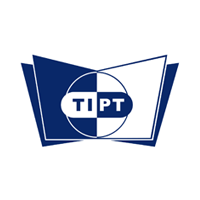
The pharmaceutical industry, like any other workplace, operates on information. In order for this information to be shared effectively, students can’t rely only on standard procedure, they must also practice good documentation.
In essence, documentation is simply a way to share a message or information to the reader, and can help influence a facility’s day to day operations as well as protect it from liability or mistakes. There are four main characteristics that influence good documentation: it has to be factual, complete, current, and organized. Read on to learn more about how pharmaceutical students can improve their documentation skills.
Write Clearly and Concisely
Ultimately, a pharmaceutical facility is accountable for the information it uses, and that information has to have consistent and accurate quality. Documentation is a key way of making sure that ideas, concepts, and instructions are communicated clearly, and it is important to remember to write succinctly and with purpose.

In order to make sure you build the habit of good documentation during your pharmaceutical manufacturing program, refer to the clarity standard. In order to properly convey the relevant information, every word should have a function and purpose for being there. Ask yourself if the message would be clear and easily understood, if, for instance, someone completely new to the field were reading it.
GMP Certification Means Paying Attention to Detail
Another key aspect of ensuring good documentation is to simply pay attention to detail. Documentation relies on detailed information, and by ensuring that standard practices are followed, students can better guarantee that the work is accurate down to the letter.
Pursuing GMP certification means that the individual is prepared to follow policies and procedures, and has the added benefit of improving levels of attention to detail by emphasizing the intricacies and fine print of workplace policies.
Know Your Audience
Just as it is important to write concisely and only include relevant information in the documentation process, it is also helpful to be sure of who the audience is, and what information the reader expects to be communicated.

Before you begin, make sure you know the exact purpose of the document. As you go along, check the document against what’s known as the reperformance standard, which ensures that a procedure can be accurately reperformed in case its results are challenged.
Write Down Everything After Your Pharmaceutical Program
It may seem like a simple solution, but the physical act of writing something down helps reinforce the information in our memory. The way that we write can be less fluid than typing or keying information, which means that we use a different mental rhythm. Writing stimulates our visual-motor memory, which helps us identify and remember shapes, and in this case written information.
That’s not to say that you should copy down every bit of information that you come across after your pharmaceutical program, but it can help to keep track of things that might be overlooked or forgotten. By doing this, you can better retain the information you need to produce comprehensive documentation in any situation.
Are you interested in enrolling in a pharmaceutical manufacturing program?
Contact the Toronto Institute of Pharmaceutical Technology today for more information.
